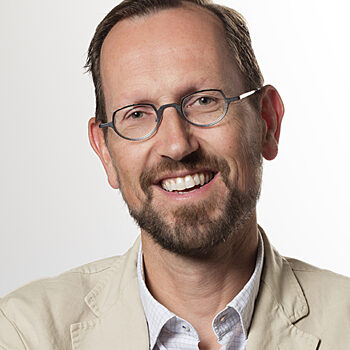Centre for the Study of the Flemish Primitives
In the 15th century, the artists of the Southern Netherlands took our rich heritage to the very top. With the Centre for the Study of the Flemish Primitives, the Royal Institute for Cultural Heritage (KIK-IRPA) boasts an internationally renowned research unit for the study and inventorying of these paintings, which can be found in museums and collections worldwide.
Search the Friedländer database
Driving force for scientific research
Scientific research has been the core activity of the Study Centre since its foundation by Paul Coremans in 1949. The Adoration of the Mystic Lamb by the Van Eyck brothers, a masterpiece in Western art history, had just returned to post-war Belgium, having been retrieved from the Altaussee salt mines near Salzburg. The Study Centre then published two pioneering studies on the polyptych: a voluminous photo book with unseen macro photos (1948) and an innovative natural science study, L'Agneau Mystique au Laboratoire (1953).
Bart Fransen, head of the Study Centre: “We remain faithful to our foundations: our research is systematic, richly documented, interdisciplinary and available to a wide audience. We research all Flemish Primitives, but Jan van Eyck has a special place in our hearts. He is our favourite and still plays a pioneering role in our work, as evidenced by the leading projects of recent years: the restoration of the Ghent Altarpiece, the recent publications on the polyptych, the website Closer to Van Eyck and finally the VERONA project that won the European Heritage Award.”

Unique documentation centre
The Study Centre has an unparalleled collection of documents on the works of the Flemish Primitives, some six thousand paintings in total, spread across museums and collections worldwide. We continuously replenish our material and make it available to researchers via multiple channels:
- The specialised library is exclusively centred on the Flemish Primitives. The catalogue is accessible online via BALaT. Would you like to come and consult our collection? Please make an appointment via infoXV@kikirpa.be or phone us on +32 2 739 68 66.
- The photo archive. Here you will find some forty thousand photographs and detailed shots of works by 15th-century Flemish masters. You can consult the pictures taken by the Royal Institute for Cultural Heritage and download them free of charge via BALaT.
- The Friedländer database is an online overview of all the works by the Flemish Primitives between 1400 and 1500. It is a digital continuation of the leading work on this subject: Early Netherlandish Painting by Max Jakob Friedländer.

We remain faithful to our foundations: our research is systematic, richly documented, interdisciplinary and available to a wide audience. We research all Flemish Primitives, but Jan van Eyck has a special place in our hearts.

Scientific publications
Three scientific series present the results of the various research projects of the Study Centre, often carried out in cooperation with local and foreign specialists:
- The series The Flemish Primitives - Corpus offers exhaustive art historical and scientific analysis of early Netherlandish paintings of the 15th century in important public collections. The texts are written by specialists and are richly illustrated with details and technical documentation.
- The series The Flemish Primitives - Repertory is dedicated to the study of 15th- and early 16th-century Flemish paintings from lesser-known collections, with the aim of bringing greater recognition to these artworks within the scholarly community. It is an indispensable tool for further scientific research.
- The series The Flemish Primitives - Contributions deals with specific subjects in 15th-century early Netherlandish painting. The topics can be linked to a particular research or conservation project, to an exhibition, an international symposium, a PhD project or any other research topic related to the art historical study of 15th-century early Netherlandish painting.
Discovered a Flemish Primitive?
Are you researching a 15th-century painting by a Flemish master, or do you have one in your collection? The Study Centre will be pleased to help you with free initial advice or with its extensive expertise in art historical research, attribution and dating. Feel free to send us an e-mail with some information about your project.
We cannot value your work, and we do not issue certificates. For technical research and conservation treatment, we will put you in contact with our colleagues at the Painting Studio, the Painting Lab or the Scientific Imagery Unit.
We also carry out more extensive studies, including art historical research, attribution and dating. For a tailored quote, please contact Bart Fransen.
Are you looking for an exciting internship?
Are you under the spell of the Flemish Primitives and looking for experience in art historical research, publishing or managing documentation? Then our Centre is the right place for you. We welcome art history interns from Belgium and abroad, involve them in our activities and pass on our knowledge and passion.
Working in interdisciplinarity throughout my internship was particularly striking and my research work is still deeply influenced by it today.
Scientific Committee
In our scientific activities, we are advised and assisted by a committee of specialists from the academic and museum sectors:
Permanent members: Till-Holger Borchert (Aken, Suermondt-Ludwig Museum) | Dr. Véronique Bücken (KMSKB-MRBAB, Brussel) | Prof. Dr. Valentine Henderiks (ULB, Brussels) | Prof. Dr. Maximiliaan Martens (Universiteit Gent) | Dr. Cyriel Stroo (KIK-IRPA)
Non-permanent members: Dr. Ingrid Falque (UCL, Louvain-la-Neuve) | Dr. Daan van Heesch (KBR, Brussel) | Dr. Anna Koopstra (Musea Brugge) | Prof. Dr. Didier Martens (ULB, Brussel) | Prof. Em. Dr. Catheline Périer-D'Ieteren (ULB, Brussel) | Jean-Luc Pypaert
Ex oficio: Dr. Dominique Van Wijnsberghe | Dr. Christina Currie
Contact the Centre for the Study of the Flemish Primitives

Our experts
You can contact us by e-mail infoXV@kikirpa.be or by phone +32 (0) 2 739 68 66.




